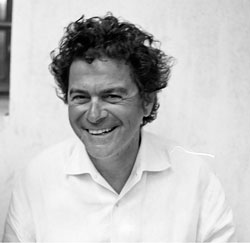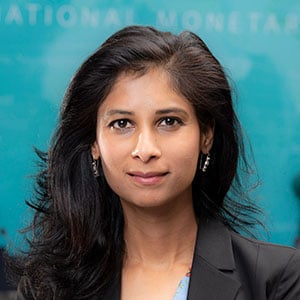Tribute to Alberto Alesina (1957-2020)
 Alberto Alesina
was my brilliant and creative colleague at Harvard. He hired me from the
University of Chicago's Booth School of Business in 2005 and I recall him
telling me to ask for a better Harvard offer because that was fair, and he
loved going to war with the Deans! This was Alberto. Never a dull moment,
and always going to bat for you. There was no one quite like him.
Alberto Alesina
was my brilliant and creative colleague at Harvard. He hired me from the
University of Chicago's Booth School of Business in 2005 and I recall him
telling me to ask for a better Harvard offer because that was fair, and he
loved going to war with the Deans! This was Alberto. Never a dull moment,
and always going to bat for you. There was no one quite like him.
Alberto was the father of modern political economy. His pioneering work on political cycles and the impact of ideology and elections on economic outcomes inspired legions of researchers to take political economy seriously. By probing the political origins of the very different welfare states in Europe and the United States, he challenged economists to think beyond economic explanations, as does his recent work on the impact of immigration on the attitudes towards redistribution.
His expansive work on austerity made a forceful argument that spending cuts are more successful in reducing debt than tax increases, which have far more distortive effects on output. He wrote a recent cover story for the IMF's Finance & Development magazine on this topic
Alberto wrote widely, including on currency unions and the optimality of currency areas. In 2005 he gave the Mundell-Fleming Lecture at the International Monetary Fund's Annual Research Conference, where he analyzed why countries waited to bring down excessive fiscal deficits and inflation, what prompted a reversal in policies, and the role IMF programs played. With IMF coauthors, he recently delved into what determines the timing, and the electoral consequences, of structural reforms.
Alberto was a highly decorated economist and on the short list of people likely to win a Nobel prize. He was the founder of the NBER's political economy program and was an elected member of the American Academy of Arts and Sciences and the Econometric Society. He was also deeply involved in public debates on the issues of the day.
Despite all his accolades Alberto had no pretensions, no airs. He was loved by students because he was approachable and could joke about the frivolous and the serious. He loved life, especially when he was racing down ski slopes. Given how prolific he was and how much time he spent on the slopes, I can only imagine that brilliant big ideas must have kept popping into his head as he skied.
The profession has lost a most creative mind and intellectual leader. I, like numerous others, have lost a dear friend, who worked hard, played hard, and cared deeply about his colleagues and students.
Opinions expressed in articles and other materials are those of the authors; they do not necessarily reflect IMF policy.








